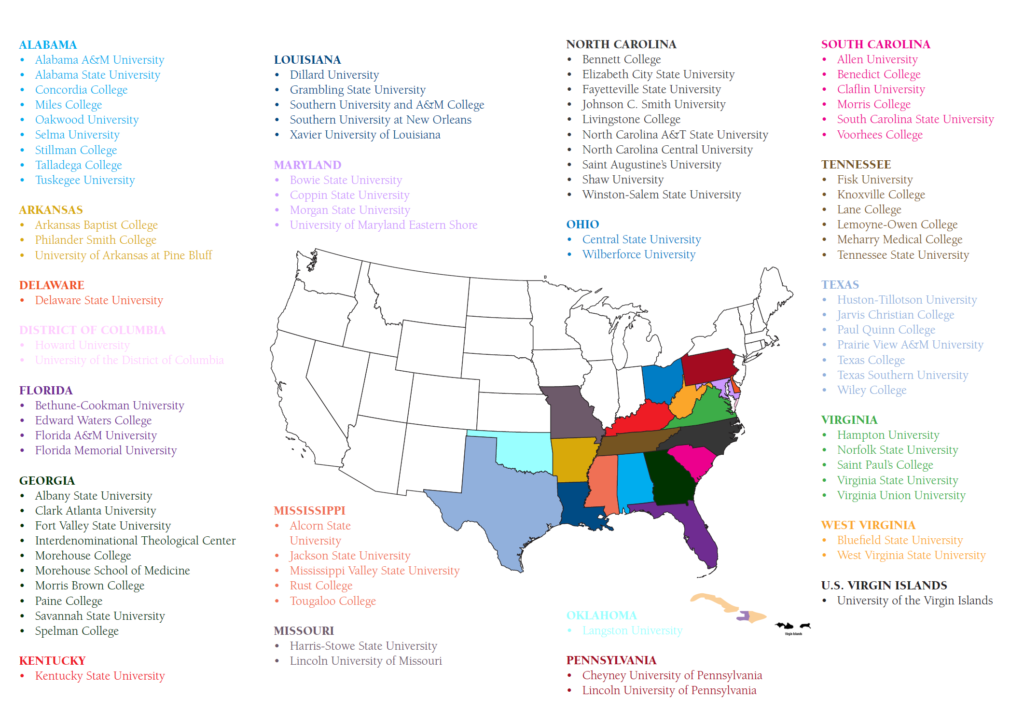What is the purpose of HBCU Bridge?
The sports-production community (as well as related equipment manufacturers and service providers) often find it difficult to find next-generation talent. The goal of HBCU Bridge is to help cross that chasm by making it easier for those looking to hire full-time, part-time, or freelance staff to find qualified candidates.
In addition, many college students are simply unaware of the wide range of career opportunities in and around sports production. HBCU Bridge will help raise awareness among undergraduates and graduates alike, building excitement, interest, and a focus on becoming a sports production professional.
How does HBCU Bridge work?
There will be open enrollment periods during the year where sports production companies, leagues, teams, and vendors can submit proposals for new opportunities. When the enrollment period ends, the team at HBCU Bridge will evaluate the proposals and then begin the hard work of reaching out to university department heads, professors, and others to identify top candidates for a position. The goal is to provide the employer with vetted candidates that are interested, motivated, and excited about a career in sports production.
Who makes the final hiring decision?
The final hiring decision is made by your team. HBCU Bridge does the legwork on finding strong candidates and then passing forward information regarding those candidates. The rest is up to you and your team.
Who manages the students/graduates on site and who handles paying the students?
Given that each SVG member or sponsor organization handles their own event production (and payments) differently, it is the responsibility of each applying organization to ultimately manage the students and/or graduates with respect to employment forms, credentials, release forms and waivers, etc.
What does HBCU stand for?
HBCU stands for Historically Black Colleges and Universities.
How many HBCUs are there in total and where are they located? How many students are enrolled?
There are 100 HBCUs with more than 280,000 students enrolled.
Where are HBCUs located?
Below is a map of HBCU locations:

HBCU schools are not located all across the country. If my opportunity is in a state far removed from an HBCU, how can my company get involved?
The good news is students at HBCUs come from not only every state but even foreign countries. There are plenty of undergraduates who will return home to those states or countries during the summer or school breaks, making them ideal candidates for positions. And many recent graduates are also willing to move to a new part of the country for a career opportunity.
Are some HBCUs more popular than others in the world of sports?
Yes, an example is Grambling State University, well known for its legendary football coach Eddie Robinson, and the ability to send a record number of players to the NFL. The HBCU also excels in technology and liberal arts.
Are all HBCUs located in mainland U.S.?
No. The University of the Virgin Islands is located in St. Thomas, U.S. Virgin Islands, with a second campus in St. Croix USVI.
Are HBCUs for Black students only?
No. All races and nationalities of students are enrolled in HBCUs. There is a long history of non-U.S. students enrolling in HBCUs as early the late 1800s.
Do HBCUs have a history with the sports community and how?
Yes, the HBCU community has a strong history with sports. Alice Coachman was the first African American female to win an Olympic Gold Medal in 1948 (Tuskegee University, Albany State University). Earl Lloyd was the first African American NBA player drafter from West Virginia State University. Althea Gibson, Florida A and M University alum, was the first African American to win Wimbledon, and later became a golf pro and professor of golf at Lincoln University of Missouri.
Did HBCU communities have ties to athletics and academics?
Yes, most HBCUs historically have a strong connection to the surrounding communities to connect sports, academics, health, and total well-being.
How will the two communities (sports and HBCUs) connect to enhance opportunities for both?
The partnership will allow HBCU students, professors, and alumni the opportunity to work with a world class sports video organization to learn everything sports for possible internships and new career opportunities while allowing a reverse role for both partners.